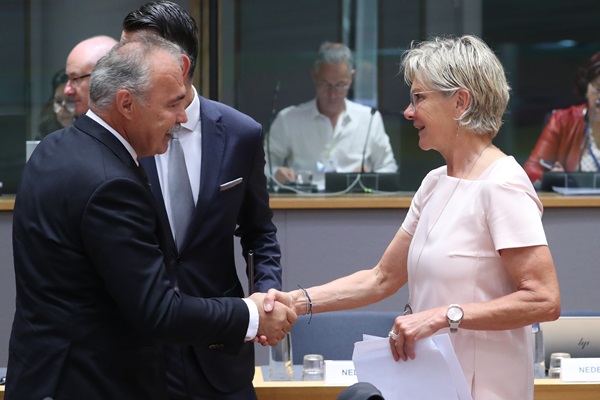 (right) Luxembourg’s Minister for Agriculture, Food and Viticulture, Martine Hansen,;
Credit: European Union
(right) Luxembourg’s Minister for Agriculture, Food and Viticulture, Martine Hansen,;
Credit: European Union
Luxembourg’s Ministry of Agriculture, Food and Viticulture has announced that the Hungarian Presidency of the European Union’s Council presented its work programme and main priorities for the field of agriculture and fisheries in the coming semester on Monday 15 July 2024.
The viability of rural areas in Europe was an important topic. Due to its small size, the Grand Duchy of Luxembourg enjoys a “special situation”, the ministry noted. Unlike other European countries, the population is increasing in rural areas of the peri-urban type, leading to pressure on the availability of agricultural land and challenges in terms of the integration of newcomers. According to Luxembourg’s Minister for Agriculture, Food and Viticulture, Martine Hansen, the common agricultural policy (CAP) after 2027 must therefore maintain a strong agricultural sector, diversified and sustainable food production, and stimulate generational renewal. The minister advocated strong measures for young farmers and greater room for manoeuvre for Member States in defining rural development measures. In this context, Minister Hansen cited the effectiveness and added value of the LEADER initiative in rural areas (Links between Rural Economy Development Initiatives).
Labelling novel foods and preserving food traditions
Faced with the arrival of novel foods, plant-based alternatives to meat and milk and laboratory food, the ministers discussed eating habits and their impact on European agriculture.
According to Martine Hansen, European culinary traditions reflect our rural cultural landscapes. "We produce quality food and I am convinced that our consumers will continue to appreciate products from our region, even if globalisation brings new foods that are useful for consumers who follow a certain diet". As for "laboratory meat", no application for authorisation has yet been submitted in the EU under the European Novel Food Regulation. In this context, Martine Hansen demanded clear and specific labelling during their authorisation procedure: "I insist on the need to inform the consumer who must be able to make an informed choice. Products must be clearly identified and must not mislead the consumer in any way."
Finally, the ministers took stock of agricultural markets. Minister Hansen said she was in favour of free trade agreements with third countries, such as Mercosur (the Southern Common Market); provided that they share the EU's societal, environmental, health and animal welfare aspirations. As for sensitive products such as beef, the minister called for tariff protection to be maintained in the EU.








